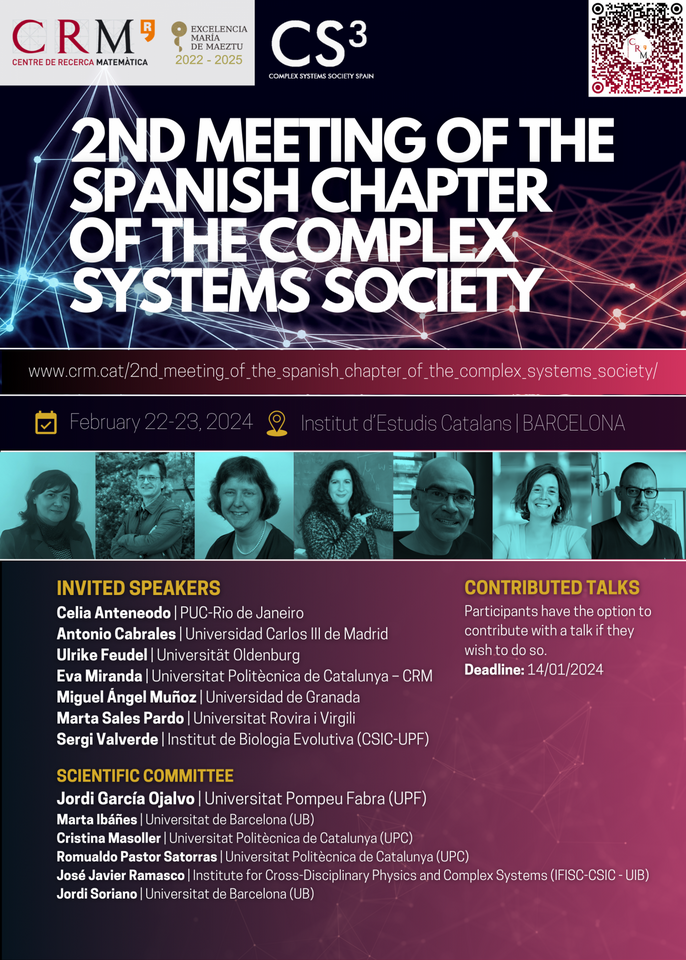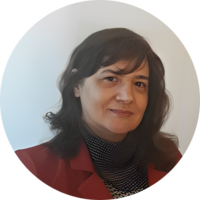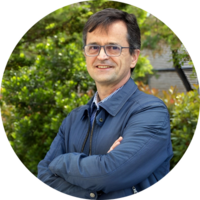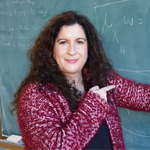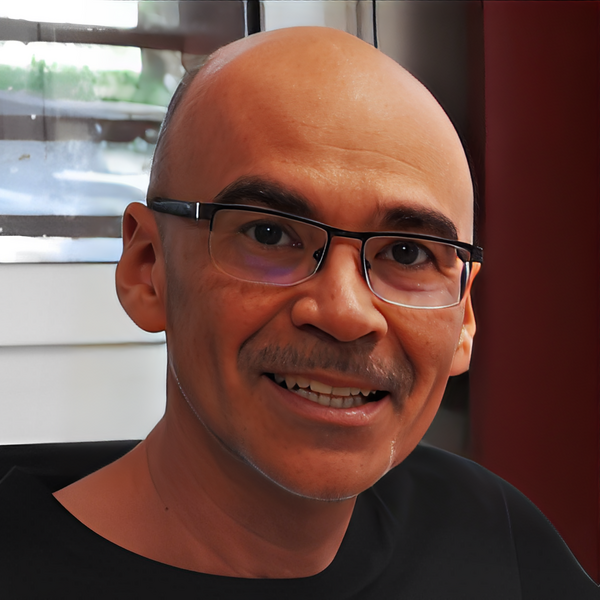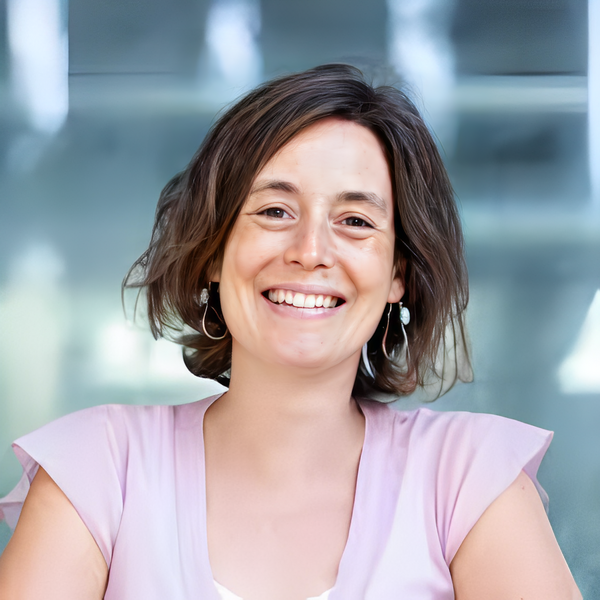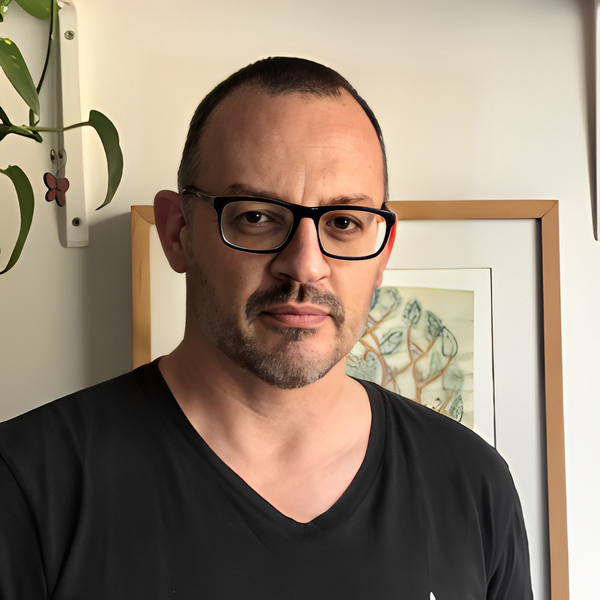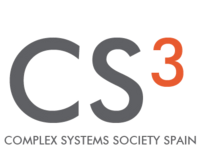
More information about the Spanish Chapter of the Complex Systems Society is provided at https://cs3.ifisc.uib-csic.es/
2nd Meeting of the Spanish Chapter of the Complex Systems Society | CS3
Sign into February 23, 2024
REGISTRATION FEE
175€ Regular Registration
125€ Junior Registration (PhD candidates or presented PhD less than 5 years ago)
The main goal of the Spanish Chapter is to gather researchers in complex systems and other areas of potential interaction in an annual meeting celebrated somewhere in Spain.
The meeting will have the format of a two-day workshop with about 5 invited talks (30 min) and a number of contributed talks (15 or 20 min).
Previous editions:
First Meeting of the Spanish Chapter of the Complex Systems Society in Santander in May 2023.
Josep Sardanyés | Centre de Recerca Matemàtica (CRM)
Marta Ibáñes | Universitat de Barcelona (UB)
Cristina Masoller | Universitat Politècnica de Catalunya (UPC)
Romualdo Pastor Satorras | Universitat Politècnica de Catalunya (UPC)
José Javier Ramasco | Institute for Cross-Disciplinary Physics and Complex Systems (IFISC – CSIC – UIB)
Jordi Soriano | Universitat de Barcelona (UB)
Interplay between adaptive awareness and epidemic spreading
Celia Anteneodo
PUC-Rio de Janeiro
Short bio
She received BSc degree in Physics from the University of Buenos Aires, Argentina (1986), and PhD in Physics from the Brazilian Center for Physics Research (CBPF, 1993), having done part of her thesis at the University of Waterloo, Canada. Later she conducted postdoctoral research in nonlinear and statistical physics at CBPF and at the Biophysics Institute of the Federal University of Rio de Janeiro (UFRJ-IBCCF), where she was visiting professor from 1997 to 2001.
https://www.fis.puc-rio.br/es/colaborador/celia-anteneodo/
Abstract
Title:
Interplay between adaptive awareness and epidemic spreading
Abstract:
The adoption of attitudes by the population to mitigate epidemic outbreaks, such as social isolation, hand washing, or the use of face masks, can be influenced by the perception of the epidemic scenario.
This perception is shaped by local and global information, and can be distorted by misinformation. Particularly, we study the impact of local and global information about the epidemic status in a susceptible–infected–recovered (SIR) dynamic that evolves in complex networks, in which the epidemiological perception of the environment can influence the behavior of susceptible individuals towards protective measures. We observe that local awareness significantly raises the epidemic threshold, delays the peak of prevalence, and reduces the outbreak size, however these effects are reduced by network heterogeneity. These results may have implications for mitigation strategies. On the other hand, the agent-based simulations reveal aspects not captured by the heterogeneous mean-field theory, which can represent a mathematical challenge to improve the theory.
Predictors of bullying behavior and victimization at school: a network approach.
Antonio Cabrales
Universidad Carlos III de Madrid
Short bio
Abstract
Bullying is a very serious problem that previous literature has shown affects a large fraction of students in compulsory schooling. We use a social networks approach to study victimization and perpetration of bullying at schools. We use a large database from high school students in Spain and collect data from their friendships, as well as individual characteristics. We show that their social network characteristics are strongly predictive of both victimization and perpetration of bullying.
Computers and Complexity: From Physical Systems to Quantum Computers and Beyond
Eva Miranda
Universitat Politècnica de Catalunya – CRM
Short bio
I am a Full Professor distinguished with two consecutive ICREA Academia Awards (2016, 2021) at (UPC), member of CRM and IMTECH. I have been recently distinguished with the François Deruyts Prize by the Royal Academy of Belgium and with a Bessel Prize by the Alexander Von Humboldt foundation. I am the 2023 London Mathematical Society Hardy lecturer as such I have enjoyed lecturing a 9 stop-tour in the summer of 2023 which has been quite a unique experience. The picture above was taken in the middle of the tour at the University of Loughborough.
I am the director of the Laboratory of Geometry and Dynamical Systems and the group leader of GEOMVAP (Geometry of Varieties and Applications). I have been the happy advisor of 12 PhD students.
My research deals with several aspects of Differential Geometry, Mathematical Physics and Dynamical Systems such as Symplectic and Poisson Geometry, Hamiltonian Dynamics, Group actions and Geometric Quantization. Almost a decade ago I started the investigation of several facets of b-Poisson manifolds (also known as log-symplectic manifolds). These structures appear naturally in physical problems on manifolds with boundary and in Celestial mechanics such as the 3-body problem (and on its restricted versions) after regularization transformations. I recently got interested in Fluid Dynamics and the study of their complexity (computational, topological, logical, dynamical) by looking through a contact mirror unveiled two decades ago by Etnyre and Ghrist. I am working in extending Floer homology to a class of Poisson manifolds including b-Poisson manifolds and the classical Weinstein conjecture in this set-up. My motivation comes from the search of periodic orbits on regularized problems in Celestial Mechanics (more information here).
Abstract
Are physical systems complicated enough to do computations?
In this talk, we will present a physical system (a Fluid) that can compute.
The construction is an abstract design of a fluid computer based on geometrical techniques.
A key step in this construction involves extending a generalized shift ( a particular type of mapping of the square Cantor set) to the time-one-map of a special 3D vector field on a solid torus—a fundamental unit that we call a ‘flubit.’ Drawing inspiration from Feynman’s rules in quantum computing, we opt to replace qubits with ‘flubits.’ This shift leads us to define a computational field theory, or ‘hybrid computer,’ as a functor from the category of cobordisms (decorated with transverse vector fields) to the category of partial recursive functions. Will the hybrid computer, with its unique ‘flubit’ design, potentially surpass quantum supremacy? Time permitting, we will explore the relation between different levels of complexity (dynamical, computational) of these constructions and speculate on methods to encapsulate them through a TQFT template.
This is joint work with Ángel González Prieto and Daniel Peralta-Salas.
Scaling of brain activity and optimal functionality: from real neurons to artificial intelligence
Miguel Ángel Muñoz
Universidad de Granada
Short bio
Abstract
Title: Scaling of brain activity and optimal functionality: from real neurons to artificial intelligence.
Speaker: Miguel Ángel Muñoz Universidad de Granada
Abstract:
I will review recent advances in data-driven analyses of brain activity, which complemented by theoretical studies such as renormalization-group techniques, allow us to shed light on the dynamical regime in which neural activity operates across brain regions. We leverage these insights to design and scrutinize artificial neural networks with recurrent interactions. We find that both biological and artificial networks achieve optimal performance when balanced to operate close to the edge of instability.
Inference for multi-layer networks, metadata and higher-order interactions
Marta Sales Pardo
Universitat Rovira i Virgili
Short bio
https://www.deq.urv.cat/en/people/marta-sales/
Abstract
From Complexity to Simplicity: the Rise and Fall of Innovations
Sergi Valverde
Institut de Biologia Evolutiva (CSIC-UPF)
Short bio
Abstract
Title:
From Complexity to Simplicity: the Rise and Fall of Innovations
Abstract:
When examining the history of technology, it becomes evident that not all inventions are defined equal. Only a chosen few have the potential to start new branches of development, significantly impact human life, and become pivotal turning points in history. The question arises: Is technological change a continuous and gradual process, or does it occur in sudden leaps and bounds? In this talk, we will explore the rise and fall of technological innovations by examining the relationship between diversity, information redundancy, open-endedness, and the role of cumulative cultural evolution (CCE) in driving technological change. Through the analysis of the evolution of information technology (IT), we will gain insights into the quantitative and theoretical aspects of cultural evolution.
CONTRIBUTIONS LIST & ABSTRACTS
SCHEDULE
 | Thursday February 22nd |
8:30 8:50 | REGISTRATION |
8:50 9:00 | WELCOME / OPENING |
9:00 9:30 | Chair: Jose Javier Ramasco (CSIC) Predictors of bullying behavior and victimization at school: a network approach. Antonio Cabrales Universidad Carlos III de Madrid |
9:30 10:45 | Contributed talks: 9:30 | A dynamical model of signed social networks _____ 9:45 | The Spanish secondary education curriculum as a multilayer network ______ 10:00 | Ordering dynamics of non-linear voter models ______ 10:15 | Partisan Voter Model: Stochastic description and noise-induced transitions ______ 10:30 | Beliefs and Social Networks: Exploring Opinion Dynamics in Interconnected Complex Systems |
10:45 11:15 | COFFEE BREAK |
11:15 11:45 | Chair: Albert Diaz Guilera (Universitat de Barcelona) Inference for multi-layer networks, metadata and higher-order interactions Marta Sales Pardo Universitat Rovira i Virgili |
11:45 13:45 | Contributed talks: 11:45 | Characterizing social information spreading by using event-synchronization and causality measures ______ 12:00 | Dynamics of Quantum Public Goods Games ______ 12:15 | Migration costs and rewarding schemes in spatial public goods games Rashid Ibrahimli (Universidad Carlos III) ______ 12:30 | An entropic study of social manifestations ______ 12:45 | Understanding the Vegetable Oil Debate and its Implications for Sustainability through Social Media ______ 13:00 | Data and Model Analysis of Socioeconomic Influence on Linguistic Variation ______ 13:15 | Language dynamics within adaptive networks: An agent-based approach of nodes and links coevolution ______ 13:30 | Analysis of language ideologies and social interconnectivity for languages in contact |
13:45 15:30 | LUNCH |
15:30 16:00 | Chair: Jordi Garcia-Ojalvo (Universitat Pompeu Fabra) From Complexity to Simplicity: the Rise and Fall of Innovations Sergi Valverde Institut de Biologia Evolutiva (CSIC-UPF) |
16:00 16:45 | Contributed talks: 16:00 | Thermodynamics of Darwinian evolution in molecular replicators ______ 16:15 | Growth rate determines cell cycle time allocation in budding yeast ______ 16:30 | On a mathematical model of epidermal wound healing in Drosophila embryos ______ 16:45 | Circular Directional Flow Decomposition |
17:00 17:30 | COFFEE BREAK |
17:30 18:30 | Chair: Josep Sardanyés (Centre de Recerca Matemàtica) Contributed talks: ______ 17:30 | “Impossible” pattern formation made possible by pulsed interactions ______ 17:45 | Sparse species interactions reproduce abundance correlation patterns in microbial communities ______ 18:00 | A pragmatic approach to predict tipping points in dynamical systems ______ 18:15 | Linear theory of the spatial signatures of critical slowing down |
18:30 19:30 | Assembly of the Complex Systems Society Spanish Chapter |
20:30 | SOCIAL DINNER |
Friday February 23rd | |
9:00 9:30 | Chair: Cristina Masoller (Universitat Politècnica de Catalunya) Interplay between adaptive awareness and epidemic spreading Celia Anteneodo PUC-Rio de Janeiro |
9:30 10:45 | Contributed talks: 9:30 | Network trajectories _____ 9:45 | Modeling and Data-Driven Surveillance strategies in Urban Epidemiology Pablo Valgañón (University of Zaragoza) ______ 10:00 | Semi-metric topology characterizes epidemic spreading on complex networks ______ 10:15 | Microscopic organization of higher-order networks drives explosive collective behaviors ______ 10:30 | Restoring uniformity in hypergraph spectral centralities via the uplift |
10:45 11:15 | COFFEE BREAK & GROUP PHOTO |
11:15 11:45 | Chair: Marián Boguñá (Universitat de Barcelona) Scaling of brain activity and optimal functionality: from real neurons to artificial intelligence Miguel Ángel Muñoz Universidad de Granada |
11:45 13:30 | Contributed talks: 11:45 | An effective theory of collective deep learning ______ 12:00 | Optimal navigability of weighted human brain connectomes in physical space ______ 12:15 | Liquid state computing in neuronal cultures: effects of connectivity modularity on response separation and generalisation in numerical simulations and experiments ______ 12:30 | Probabilistic graph alignment applied to brain connectomes ______ 12:45 | Performance of different permutation entropy-based methods for distinguishing eyes-open and eyes-closed brain states ______ 13:00 | Weakly geometric graphs and their properties ______ 13:15 |Exploring Cultural Heritage Impact on the French Way of Camino de Santiago in Castilla y León: A Google News Analysis |
13:30 15:00 | LUNCH |
15:00 15:30 | Chair: M. Ángeles Serrano Moral (Universitat de Barcelona) Computers and Complexity: From Physical Systems to Quantum Computers and Beyond Eva Miranda Universitat Politècnica de Catalunya – CRM |
15:30 17:15 | Contributed talks: 15:30 | Identifiability Matters: A Closer Look at the art of simple mathematical models for complex systems ______ 15:45 | Does big data help answer big questions? The case of airport catchment areas & competition ______ 16:00 | Symbolic machine learning to understand human mobility Oriol Cabanas (Universitat Rovira i Virgili) ______ 16:15 | Assessing the real estate market spatial segmentation ______ 16:30 | Reputation-driven interactions influence the emergence of technological innovations ______ 16:45 | Feature-enriched hyperbolic network geometry ______ 17:00 | The D-Mercator method for the multidimensional hyperbolic embedding of real networks |
17:15 18:15 | WINE&CHEESE & FAREWELL |
| Name | Institution |
|---|---|
| Alvaro Corral | Universitat Autònoma de Barcelona – Centre de Recerca Matemàtica |
| Maxi San Miguel | IFISC (CSIC-UIB) |
| Dmitry Sinelshchikov | Biofisika Institute (CSIC, UPV/EHU) |
| Emilio Hernandez-Garcia | IFISC (CSIC-UIB) |
| Yérali Gandica | Valencian International University |
| Adolfo Alsina | Instituto Gulbenkian de Ciência |
| M. Ángeles Serrano Moral | ICREA and University of Barcelona |
| Chunhong Li | UOC |
| Jesús Arturo Moreno López | IFISC (UIB-CSIC) |
| Celia Anteneodo | Pontifícia Universidade Católica do Rio de Janeiro |
| Angelo Piga | Universitat de Barcelona |
| Akke Mats Houben | Universitat de Barcelona |
| Marta Ibañes | Universitat de Barcelona |
| Jordi Soriano Fradera | Universitat de Barcelona |
| M. Carmen Miguel | Universitat de Barcelona |
| Marc Sadurní Parera | Universitat de Barcelona |
| Albert Diaz Guilera | Universitat de Barcelona |
| Lucía Ramirez | Universitat de Barcelona |
| Mikel Ocio Moliner | Universitat de Barcelona |
| Marc Burillo Garcia | Universitat de Barcelona |
| Marián Boguñá | Universitat de Barcelona |
| Dimitri Marinelli | Universitat de Barcelona |
| Oriol Artime | Universitat de Barcelona |
| Roya Aliakbarisani | Universitat de Barcelona |
| Jasper van der Kolk | Universitat de Barcelona |
| Laia Barjuan Ballabriga | Universitat de Barcelona |
| Robert Jankowski | Universitat de Barcelona |
| Giulio Tirabassi | Universitat Politècnica de Catalunya |
| Eva Miranda Galcerán | Universitat Politècnica de Catalunya |
| cris MASOLLER | Universitat Politècnica de Catalunya |
| Juan Gancio | Universitat Politècnica de Catalunya |
| Artemy Kolchinsky | Universitat Pompeu Fabra |
| Jordi Garcia-Ojalvo | Universitat Pompeu Fabra |
| Gorka Zamora-López | Universitat Pompeu Fabra |
| Kshitij Sinha | Universitat Pompeu Fabra |
| Segio Gómez | Universitat Rovira i Virgili |
| Marta Sales Pardo | Universitat Rovira i Virgili |
| Manuel Ruiz Botella | Universitat Rovira i Virgili |
| Gemma Bel Bordes | Universitat Rovira i Virgili |
| Teresa Lázaro Sánchez | Universitat Rovira i Virgili |
| Lluís Torres Hugas | Universitat Rovira i Virgili |
| Oriol Cabanas | Universitat Rovira i Virgili |
| David Soriano Paños | Universitat Rovira i Virgili |
| Albert Sole | Universitat Oberta de Catalunya |
| Javier Borge | Universitat Oberta de Catalunya |
| Robert Benassai | Universitat Oberta de Catalunya |
| Ruben Rodriguez Casañ | Universitat Oberta de Catalunya |
| Cristina Bustos | Universitat Oberta de Catalunya |
| Alessio Cardillo | Universitat Oberta de Catalunya |
| David Sanchez | Universitat de Les Illes Balears |
| Jaume Llabrés Rubio | Universitat de Les Illes Balears |
| Christos Charalambous | Universitat de Les Illes Balears |
| Pablo Rosillo-Rodes | Universitat de Les Illes Balears |
| David Abella | Universitat de Les Illes Balears |
| Beatriz Arregui García | Universitat de Les Illes Balears |
| Miguel Ángel Muñoz | Universidad de Granada |
| Santiago Lamata Otín | Universidad de Zaragoza |
| Pablo Valgañón | Universidad de Zaragoza |
| Hugo Pérez-Martínez | Universidad de Zaragoza |
| Alberto Aleta Casas | Universidad de Zaragoza |
| Pablo Gallarta | Universidad de Zaragoza |
| Rosa María Benito Zafrilla | Universidad Politécnica de Madrid |
| Juan Carlos Losada González | Universidad Politécnica de Madrid |
| Mario Castro | Universidad Pontificia de Comillas |
| Miguel Ángel González Casado | Universidad Carlos III de Madrid |
| Alberto Antonioni | Universidad Carlos III de Madrid |
| Angel Sánchez | Universidad Carlos III de Madrid |
| Jose Manuel Camacho-Mateu | Universidad Carlos III de Madrid |
| Rashid Ibrahimli | Universidad Carlos III de Madrid |
| Antonio Cabrales | Universidad Carlos III de Madrid |
| Aniello Lampo | Universidad Carlos III de Madrid |
| José Manuel Galán | Universidad de Burgos |
| Gonzalo Contreras Aso | Universidad Rey Juan Carlos |
| Jorge Tredicce | Universidad Rey Juan Carlos |
| Ceren Ekinci | Ruprecht Karl University of Heidelberg |
| Marc Homs-Dones | University of Warwick |
| Lluis Danus Amengual | University of Pennsylvania |
| Sergio Cobo-Lopez | San Diego State University |
| Tomas Alarcon | Centre de Recerca Matemàtica |
| Arantxa Sanz | Centre de Recerca Matemàtica |
| Stefano Pedarra | Centre de Recerca Matemàtica |
| Amaia Vielba | Centre de Recerca Matemàtica |
| Oriol Llopis Almela | Centre de Recerca Matemàtica |
| Josep Sardanyés | Centre de Recerca Matemàtica |
| Juan Fernandez-Gracia | CSIC |
| Sergi Valverde | CSIC |
| Sandro Meloni | CSIC |
| Daniel Oro | CSIC |
| Lluís Arola Fernández | CSIC |
| Jose Javier Ramasco | CSIC |
| LUCAS LACASA | CSIC |
UPF | UB | UPC | UAB
Paying by credit card
ON-CAMPUS AND BELLATERRA
BARCELONA AND OFF-CAMPUS
|
For inquiries about this event please contact the Scientific Events Coordinator Ms. Núria Hernández at nhernandez@crm.cat
|


